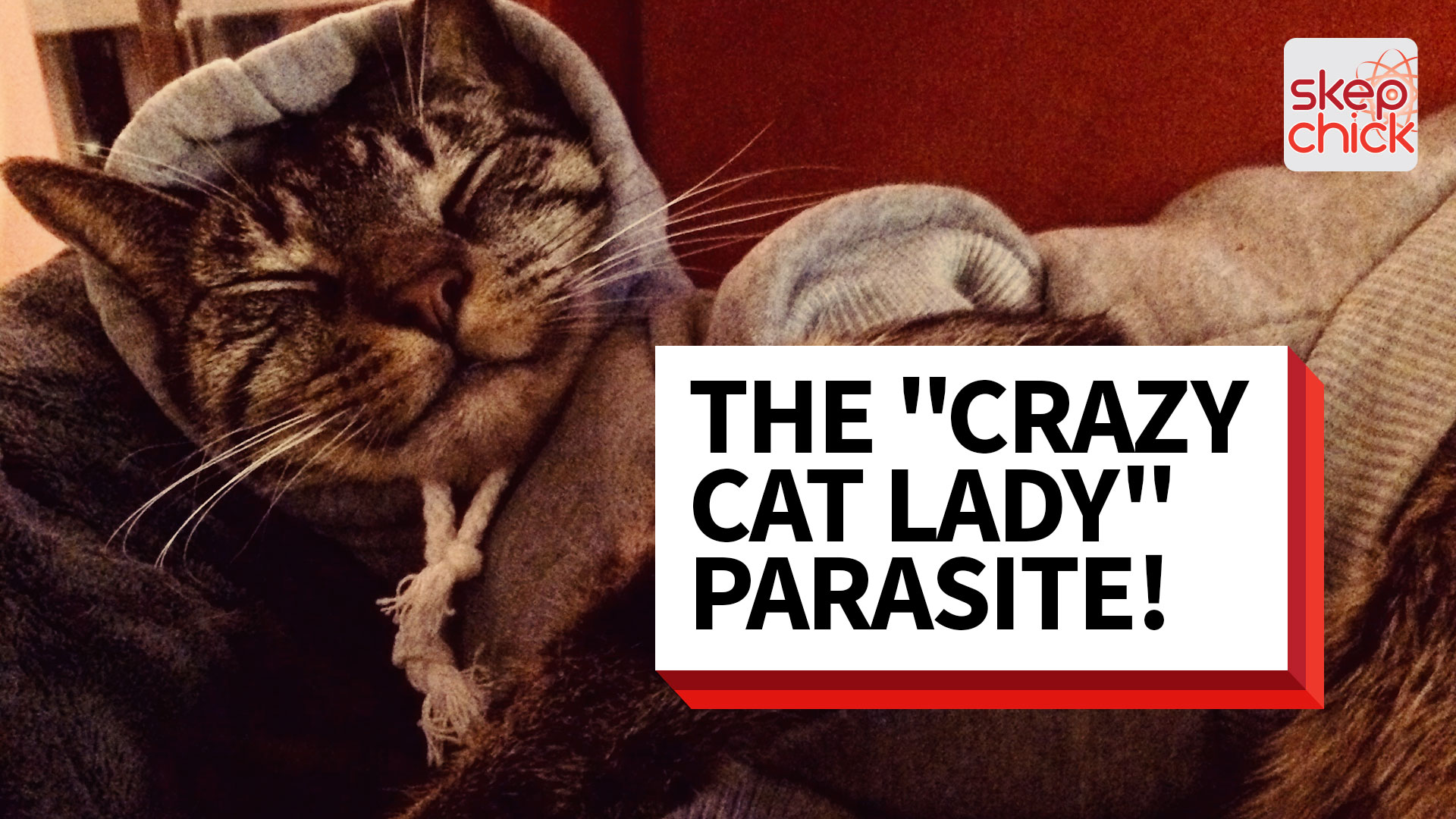Does T. Gondii Really Create “Crazy Cat Ladies”?

Support more videos like this at patreon.com/rebecca!
By now, most people have heard of toxoplasma gondii, the parasite that turns people into crazy cat ladies. At least, that’s the view of it that has made it a popular subject in the science news and at dinner parties where talking about cat shit is acceptable.
T. gondii is one of those parasites that fascinate us because it seems to have mind-controlling powers, it can affect humans, and the vector is a lovable little beast that inhabits many of our homes. It’s the perfect recipe for parasite popularity!
T. gondii infects mice, but it can only reproduce in the digestive track of cats. So, it infects the mouse brains and makes them less afraid of cat pee and more likely to be forgetful, which makes the mice more likely to be eaten. The parasite then lays eggs, which are subsequently pooped out by the cats. Humans can get infected when they handle and that poop or breathe in its fumes, either while cleaning a litter box, or gardening, or playing in a sandpit (aka the feline public toilet), or doing some other weird thing that involves cat poop. I don’t know your life.
It’s a pretty successful parasite at this point thanks to all the cats we idiot humans have let roam outside where they have easy access to infected rodents. Reminder! Have your cat spayed or neutered, and keep him or her inside where it’s warm and safe and there are no small animals to murder and no cars to be murdered by.
So now a lot of humans are wandering around with T. gondii, which past studies have suggested could have similar effects as in mice. Not the part about being afraid of cat pee, but the memory problems and risk-taking behaviors, plus psychological issues like schizophrenia, severe depression, and obsessive-compulsive disorder.
All of this is news again thanks to a fairly large new study involving more than 800 38-year olds in New Zealand. Contrary to previous studies, this one found no correlation between toxoplasma gondii infection and any psychological issue, except for a very, very tenuous possible correlation with suicide attempts and a single memory test. There was zero difference in personality, depression, schizophrenia, criminal convictions, traffic accidents, and IQ.
It’s worth noting that this single study doesn’t cancel out all the previous studies that did find correlations. The data came from a cohort study following more than 1,000 New Zealanders, meaning that 200 people didn’t have their blood analyzed for T. gondii because they either didn’t show up, were already dead, or the blood analysis was botched. Among these missing people, they were statistically more likely to have schizophrenia, major depression, or a criminal conviction. If their results had been included, maybe the study would have had a slightly different conclusion.
Also remember that possible psychological effects aside, T. gondii can cause serious problems, especially for people who are pregnant or immunocompromised. Those problems are not at all in question, so even if further research supports that the psychological effects aren’t a big deal, you still shouldn’t be playing catch with feral cat turds. It’s dangerous, and also extremely disgusting, and also what’s wrong with you? Stop that.





Well, there go my weekend plans.
A lot of parasites do alter your behavior, but they’re more subtle. A cough here, a burning sensation in the anus there. And of course, then you get ones like T. gondii or Cordyceps or rabies that attack the host’s brain directly.
So it’s really a matter of how you define “altering behavior”.
Oh, another thing to remind people: Cats are an invasive species, another reason not to let them out too much. (The wild ancestor of the cat is still around in parts of the Middle East. But if you live in America, they’re clearly an invasive species. Even if they are a cute and cuddly one that just doesn’t care.)
As invasive species go, they’ve really got nothing on humans. We’re even ruining the regions where we evolved, to say nothing of some of the places we’ve migrated to.
I’ll take “true, but useless statements” for $200, Alex.
Well, in Lakota culture, there are restrictions on (heterosexual) sex for several years postpartum. Few couples practice it anymore, but that does mean we can actually behave like a proper apex predator.
Glad you addressed this however there’s a large piece missing, namely that cats really do not infect adults with toxo. The vast majority of infections are from undercooked meat and produce. Why? Because you EAT them. To be infected “by” your cat, you would quite literally have to eat the cat feces at the time when they are shedding the parasite eggs. Little kids may do this in the sandbox; but as a vet tech I worked with 2 pregnant techs who changed dozens of litterboxes and they weren’t the least bit concerned. Not to say pregnant women should do this, however the “crazy cat lady” hypothesis is a huge misogynist misconception perpetuated by rabid MRAs who love nothing more than to view single independent women as mentally ill.